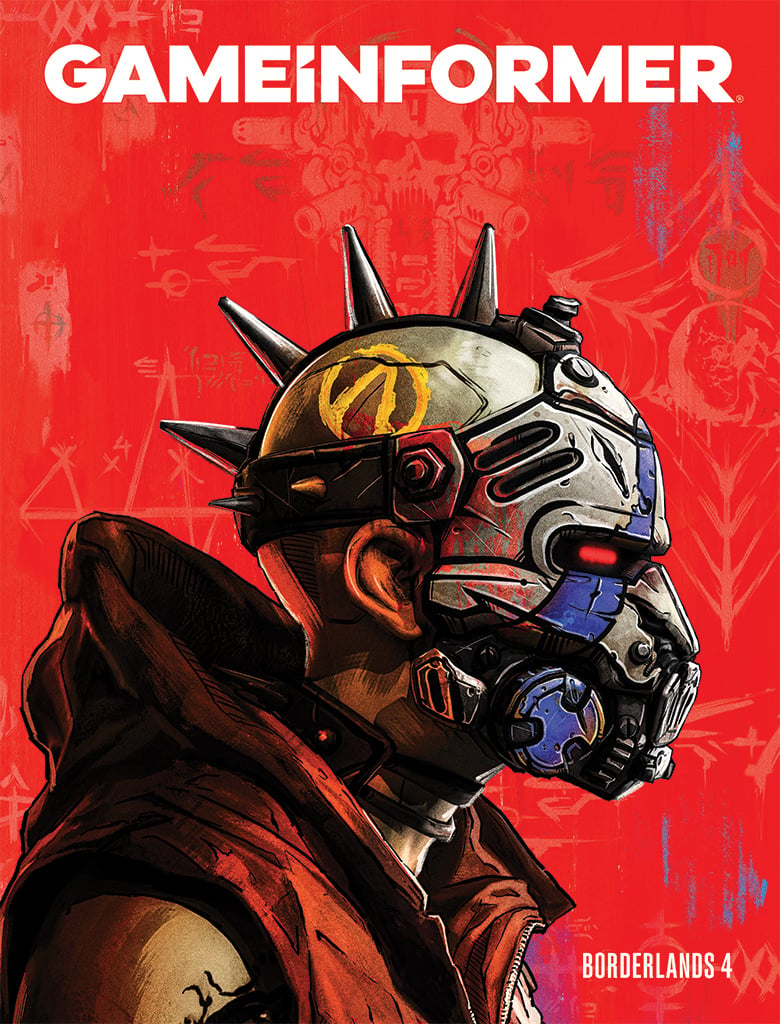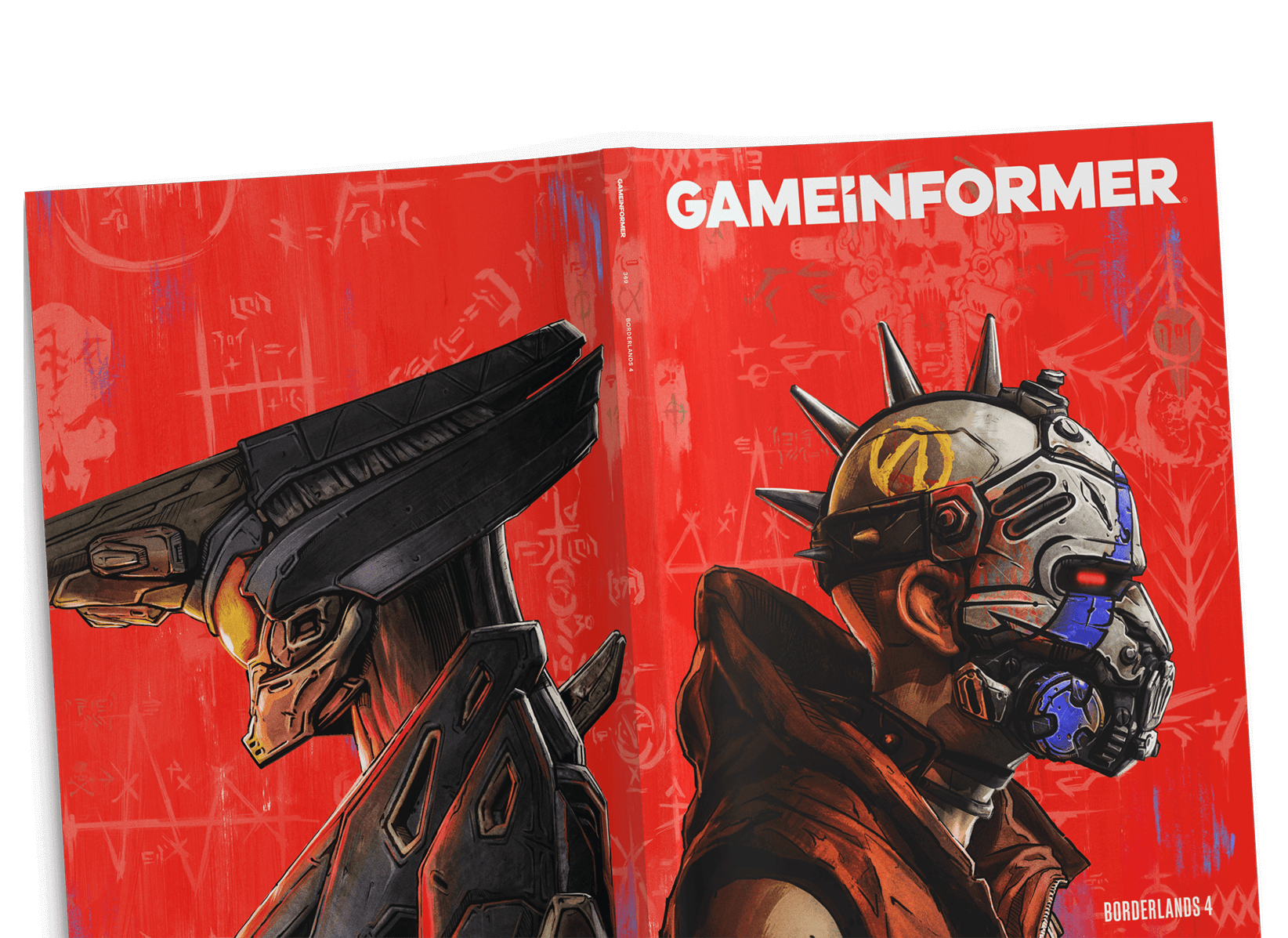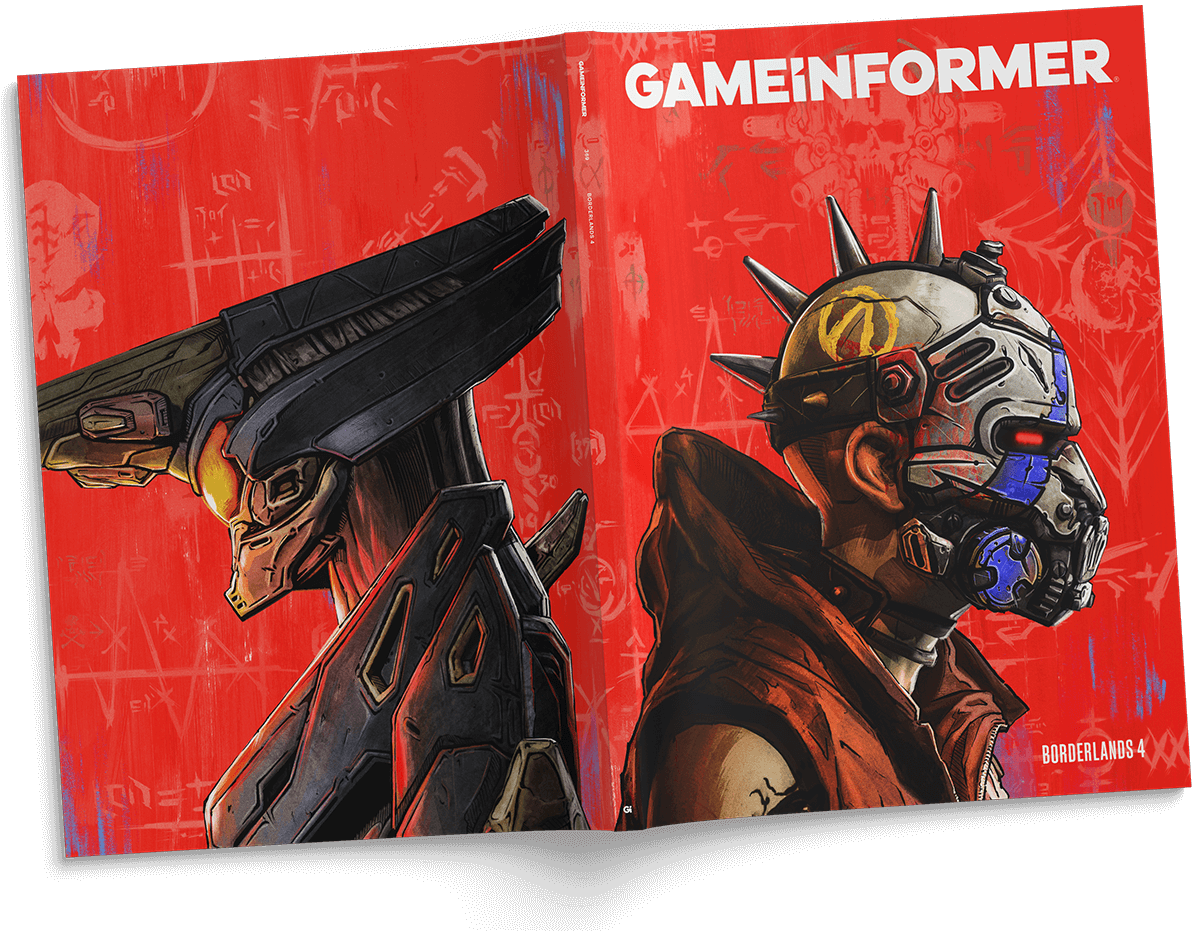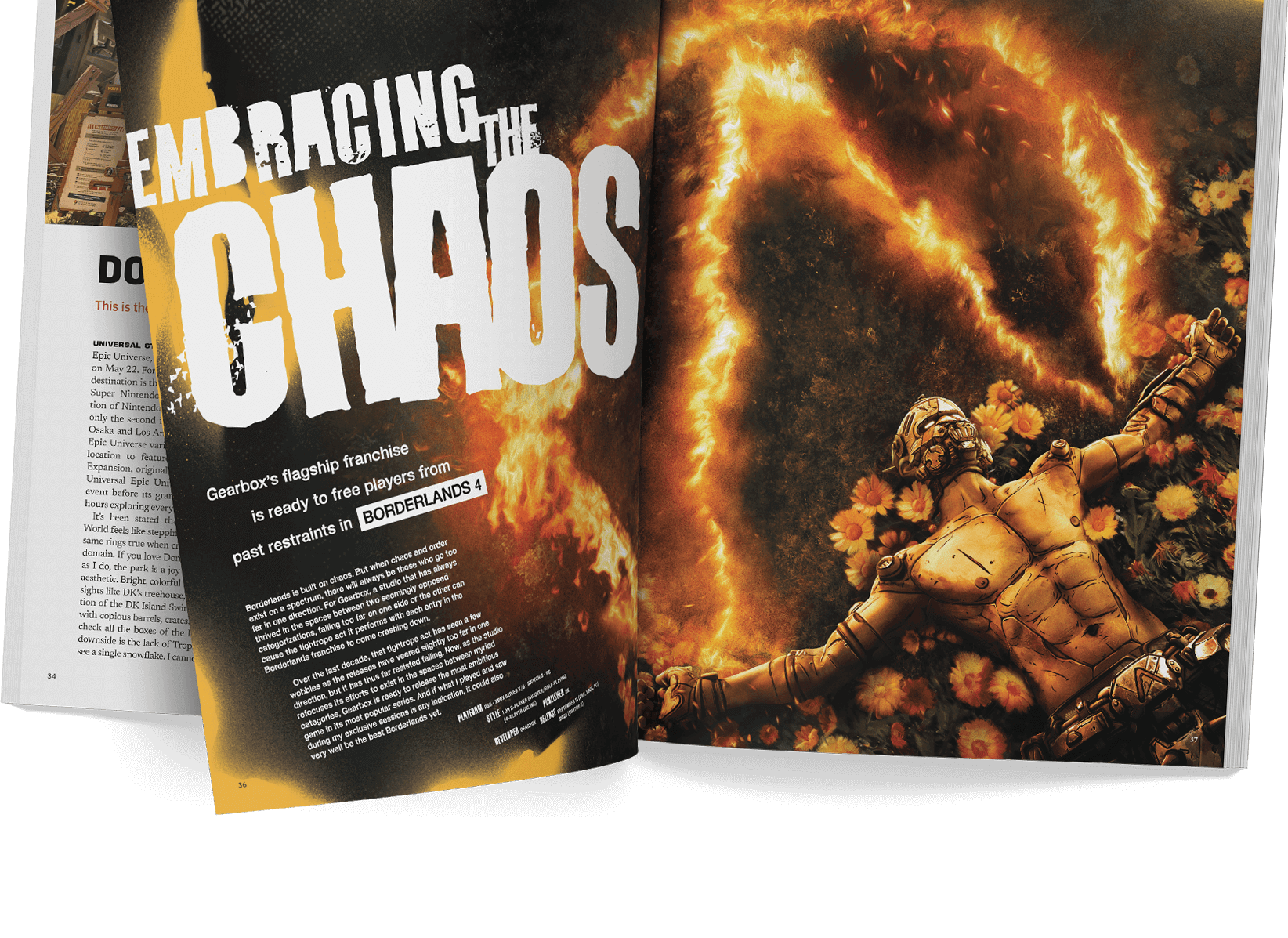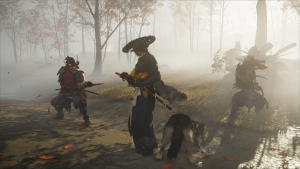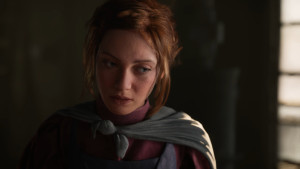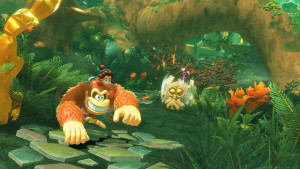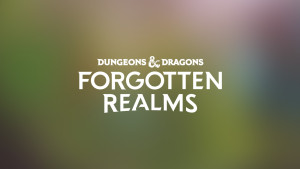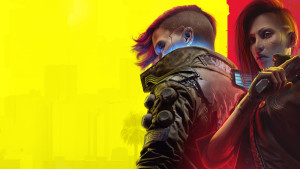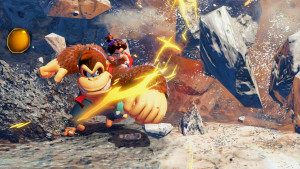Subscribe now to get the Vampire: The Masquerade – Bloodlines 2 issue and a D&D poster pack-in!
Deck Nine Talks Deleted Scenes And Queer Characters In Life Is Strange Prequel
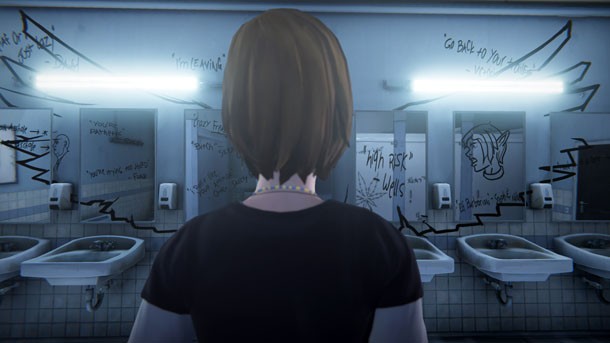
Spoiler warning: This interview contains spoilers for the first Life is Strange, as well as Life is Strange: Before the Storm.
Deck Nine took on an ambitious project when it signed on to create a prequel to Dontnod's Life is Strange, bringing Chloe and her relationship with Rachel Amber to the forefront. What resulted was a beautiful tale of friendship, love, and grief. It fleshed out Chloe to bring a more human side to her polarizing personality, portrayed how her relationship with Rachel was a defining moment in her life, and offered a new perspective to Arcadia Bay.
With Before the Storm's episodic story completed, we sat down with lead writer Zak Garriss to discuss the challenges of taking the reins from Dontnod, the research that went into writing queer characters, and the scenes that the team had to regretfully cut to keep up with tight production deadlines.
Life is Strange: Before the Storm does a great job of bringing nuance to Rachel, a character we previously knew very little about. Was it difficult to build that character from the ground up?
Rachel was one of the biggest challenges in Before the Storm as a whole. We had instruction from the first game in that her absence from the story and characters' lives was felt. You could talk to every character, especially in the first episode, and someone would have something to say about Rachel. From that, we learned that she's a little bit different to everyone, that she's kind of chimeric in that. She can represent a lot of different versions of herself. Like that she's compelling, that everyone has a strong opinion about her, most people really like her – I think the spectacle of Rachel Amber from the first game was significant. That was exciting and challenging at the same time. But we realized when we were building the story around Chloe, and specifically around the impact Rachel had in Chloe's life, we were really choosing to bet on building Rachel as a compelling character. We just did our best with it. But it was fun. I think we all thought and wrote about people we've met in our lives that defined chapters for whatever reason. Your first love, the person who breaks your heart, someone who says something at just the right time and place to change the way you think about a fundamental facet of your life. We all have these people and we really focused on that and drew on that in building and creating Rachel.
When you skip school with Rachel and ride a train with her, she mentions that she's pretty good at lying and she can be manipulative. I thought that was interesting; I began to wonder if she wasn't as great as we're led to believe. Was that a sentiment you wanted to provoke in the player?
Oh yeah. I thought a lot about – this is a weird comparison – but through development, I thought a lot about how C.S. Lewis described God. In his work, he talks about being good but not safe. I think imposing that distinction is an important one because it presents an idea that good and safe might be separate things. The way I think about Rachel is beautiful but maybe not good. I wanted to explore the things and ideas that captivate us potentially to our own end. Even if she's telling you, "I'm really good at lying" and you may think, "Maybe she's lying to me," you still think at the same time, "She's talking to me right now. She's interested in me. This person who is capable of doing almost anything she wants, wants to be around me. Maybe she is dangerous, but I don't care, because it feels good." That's just an interesting space to be in, particularly when you're 16 and you need validation, happiness, or connection on any level. I think for someone like Chloe, who is at the bottom of the Blackwell social ladder, to have a person who is at the top call her out and say "you're interesting, you're strong, you're compelling to me" – she needs that. But it might not be good, and it might not be safe. We know that from the first game.
There are several times where we see Rachel's anger come out, like when she burns down the forest. Does Rachel actually have a power or were these moments just for thematic effect?
We deliberately didn't want to answer that [in the game]. After the first episode and as the story continues on, we explored it in subtler ways. I don't think I even want to answer it now – not because we have an official answer and I don't want to say it – but I like the idea that maybe it's something we've hinted at but it's not something the story needs to directly address. I think the most powerful thing Rachel does is compel people. There is this sort of thematic and almost supernatural aesthetic to the fire scene, but far more so I think her ability to light Chloe up and change the spaces that she's in is really her gift.
Did you go into this project thinking you were going to write a compelling story about friendship, or a compelling story about love?
Game writing is weird and unlike other kinds of writing, because you have to think discursively. If you're really going to embrace player agency in the narrative, you have to think about multiple branches simultaneously. I think in writing Rachel, it was important to us to try to do both of those things – to say we're going to tell a love story and we're going to tell a story about best friends. But what we're really telling a story about is neither love or friendship; it's about people that completely change your life. And that can be love and that can be platonic.
Before the Storm has one of the best queer love stories I've seen in games. What kind of research went into that?
A lot. I think when you're writing anything, research is important. Anytime you're talking about experiences not your own, and I'm speaking about myself in this, research is absolutely vital. Research and humility. But I do think there's a gentleness that's required and a recognition of boundaries, perspectives, and biases. I'm not a 16-year-old girl – I've never struggled with those experiences or my sexuality in that particular way. So, I'm writing from a place of immense ignorance in that. But we have a writer's room. I'm not the only writer – there are four of us. Half of us are female and there are members of the room and of the studio as a whole that identify within the LGBT community. We leaned on their perspectives and insight. We read a number of things online and just thought really carefully.
We chose not to tell a coming out story, and we did that for a lot of reasons. One of the most consistent pieces of feedback I got about this was people really wanted to see gay characters, queer characters, whose queerness was the least interesting thing about them. There's a story we could have told about that, absolutely, and that could be a really fruitful story but that's not the story we were going to tell. We were going to treat queerness as incidental, as matter-of-fact. Not casually and not disregarding the intricacies, but we let that not be the most important thing going on. When they kiss, it's just going to be a romantic kiss. And we set it up to be as lovely and as crazy and awesome as it could be and just not care about the fact that it's two girls. That resonated with fans and members of the community in a way that we're all just really grateful for. We wanted to tell a story, we wanted to find the boundaries of where games are intersecting with these communities and really push them. And anytime you do that, there's a risk of insensitivity, there's a risk of a mistake, there are all sorts of risks. And I think that's okay – we should take these risks.
In terms of feedback you received on that topic, do you look back and think that there's anything you would have done differently?
No, I don't think so. There are questions I still have. Choosing to end the story with Rachel's fate was a very deliberate thing that we did. [Some fans] reacted with pain about it. And we thought that would happen. The game itself really is a pleasant fiction, because we know Chloe's fate. We know Rachel's fate. What we wanted to explore with this love story, in this little window of time, was the brilliant joy that Chloe had in Rachel but at the end, we remind you that it was temporary and that it wasn't going to last. We made a spectacle of her grief in episode one, by the end in that final scene, maybe you're feeling it in a way you wouldn't have just from her telling you that she was grieving. We wanted to see what the medium could do with that. And I'm proud of what we accomplished, and at the same time, I don't love that it hurt people because it was such an intense experience. We just want to think about the kinds of connections we're building with the interactive stories and how to be mindful. I don't think we did anything wrong, I just want to continue to be thoughtful about what we're doing because as an industry, we don't really understand what we're making still. We're still figuring it out.
Continue reading on the next page to learn about a deleted scene and the challenges of writing interactive stories.
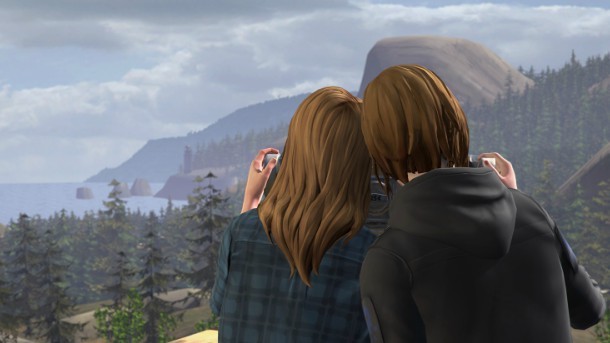
Was there a constant dialogue between you and Dontnod about trying to be canonically correct to the series? Some fans noticed there were some discrepancies.
We really strive not to have discrepancies. It was super important to us from the beginning to really honor all of the details of the first game with the prequel. It was important to Square Enix and it was important to us. I wouldn't say it was a constant dialogue, but I have interacted with the Dontnod guys. I've been to Paris – I actually flew out almost a year ago and shared our first episode with them and played through it with them. They're amazing game devs. But yeah, I think there's so much content and you do the best you can to honor every piece in every way and then the dust settles, and the game's out, and it's kind of where it's at. But that was a huge priority for us.
I can imagine it was disappointing for the team when you found out Ashly Burch couldn't lend her voice to the project, outside of the bonus episode, because of the SAG-AFTRA strike. But how involved was she in consulting for Chloe's character?
She was very involved. She read every script for every episode, shared notes with me, and we would meet either in person or over the phone to talk through it all. She's an awesome writer. I think most people know her because of her vocal work – she does great stuff – but she's actually a really insightful writer. Just getting the time to talk through what we wanted to do and hear her input – it was curious because it would come from a place of having performed Chloe and she has a very personal connection to that character. But it also came from a place of "I'm a writer and here are some instincts and thoughts." I think both sources were helpful, for sure.
In Before the Storm, we get to know Chloe more intimately and see more of her human side. I felt like the first Life is Strange focused a lot on Chloe's rebellious side. Was Ashly also responsible for bringing more humanity to her character?
Yeah, she was definitely involved. I think the foundation of what we were trying to do with the game as a whole was precisely that. By saying, "okay, we're going to play Chloe now, not Max." We're really choosing a new lens through which we get to see Arcadia Bay. Chloe is a very contentious character; she's a polarizing character in the first game. A lot of people liked her and a lot of people didn't like her. They found her toxic or annoying and bitter. And she was all those things. She's a broken person and an incredibly strong person, even in her brokenness. I think that's what drew us to her character. We wanted to really expand the player's understanding of who this person was. What her experiences were and how they shaped who she was, in this very specific moment in her life when she's meeting Rachel Amber. We looked at that and saw a fruitful space to talk about relationships, friendships, grief, loss, growing up, being a teenager – there were so many cool things we could explore. But to really do that well, I think, and not have Chloe in her volume and in her intensity get in the way, we really needed to make her authentic and sympathetic, and build empathy with all those experiences. That was the ball game.
The last episode felt a little rushed. Was there anything that you regret or anything that ended up on the chopping room floor? Did you ever consider showing how Chloe and Rachel had their falling out?
Yeah, we did consider that. We considered all sorts of moments in their lives. Ultimately, we decided to confine it to this very specific few days. And yeah, things always get cut, things always get chopped. Production is frenetic and insane. There's always darlings that don't quite make it. I'll share one that we never really talked about. We had a backtalk scene where Chloe was backtalking herself in the mirror to really explore the vulnerability she was feeling and the self-doubt, and how we can be our own worst critics and our cruelest opponents. Just for production reasons, we had to cut it, but it was one of our favorite pieces of content. It would have been really beautiful and interesting.
Speaking of backtalk, what inspired that mechanic?
That was Chris Floyd's brilliance. He's our gameplay director. He and I created it, but it was his idea. We prototyped a bunch of different versions. I think he was really channeling an understanding of who Chloe is in the first game, like you said, who was first portrayed as this angry and rebellious person. And thinking, "Okay, we're not going to have a superpower, but if Chloe did have a superpower, what would it be?" And he thought about her ability to make anyone upset and angry, and push anyone's buttons. And he wondered, "How can we build a gameplay mechanic around that idea?" And we tried many different versions and he would torture me with it. He would conceive it and then I would have to write it, and he would be like, "Okay so for this one we're going to need 20 really funny different insults." And I would just be like, "Ugh! Okay, sure. We'll come up with that." [Laughs] I think we are pretty happy with where we landed.
What are some of the biggest challenges you face with writing interactive, branching narrative?
Thinking discursively and thinking in branching structures. When you're writing a linear story or most stories, what you're doing is framing a very particular, dramatic experience that's excellent in and of itself. I think when you're writing interactive fiction, you're framing a playground for a player to have agency. You're not just watching the text or consuming it, you're performing a version of it, and really understanding what it means to have the ability to alter the performance of the rest of the content.
Curating dramatic events with the player in mind – there's an amazing tension there that makes this medium so interesting. Life is Strange really falls on the far end of the spectrum of game narrative, where it's cinematically sophisticated. What we're curating are really powerful dramatic moments and the antithesis to that is often an open world. It's very hard to make an open-world story where you can literally go anywhere. You have maximal agency and thus I, as the developer, can't control the pacing. I can't control the camera the same way. I can't control the series of events that lead to that moment in the junkyard with Chloe smashing her father's car and you're sitting there crying as the player. We can't do that with an open world. The more agency we give you, the harder it is to create cinematic peaks. Figuring out how to do that, and how to not do it to just spite the player agency, but leverage player agency to do it even more than you would see in a play or in a film – that's the ball game. That's what we're striving to do as game writers. It's really hard.
I really liked the dream sequences with Chloe and her Dad. What inspired that direction?
Part of it was a desire to keep a supernatural element in the aesthetic of the game. Kind of a Twin Peaks-like vibe to Arcadia Bay that the first Life is Strange had. We didn't have a superpower for Chloe, but everybody has the surrealism of their own dream space. So we decided to go there. And in choosing grief to explore thematically in the game, dreams play such an intimate and personal role and they're so productive and fruitful for interpretation. We're dealing with that really high-octane element of personal loss. Because you don't control your dreams, just like you don't control your feelings when you're grieving. We saw a synchrony there that felt fruitful and could show how subject Chloe is even to herself, even to her own desires, fears, and pain. But in a way that is spectacular to play through.
Dontnod is currently developing Life is Strange 2. As for Deck Nine, Garriss says the team loved working on Life is Strange, but they have no future announcements related to the franchise right now. To read our review of Before the Storm, head here.
